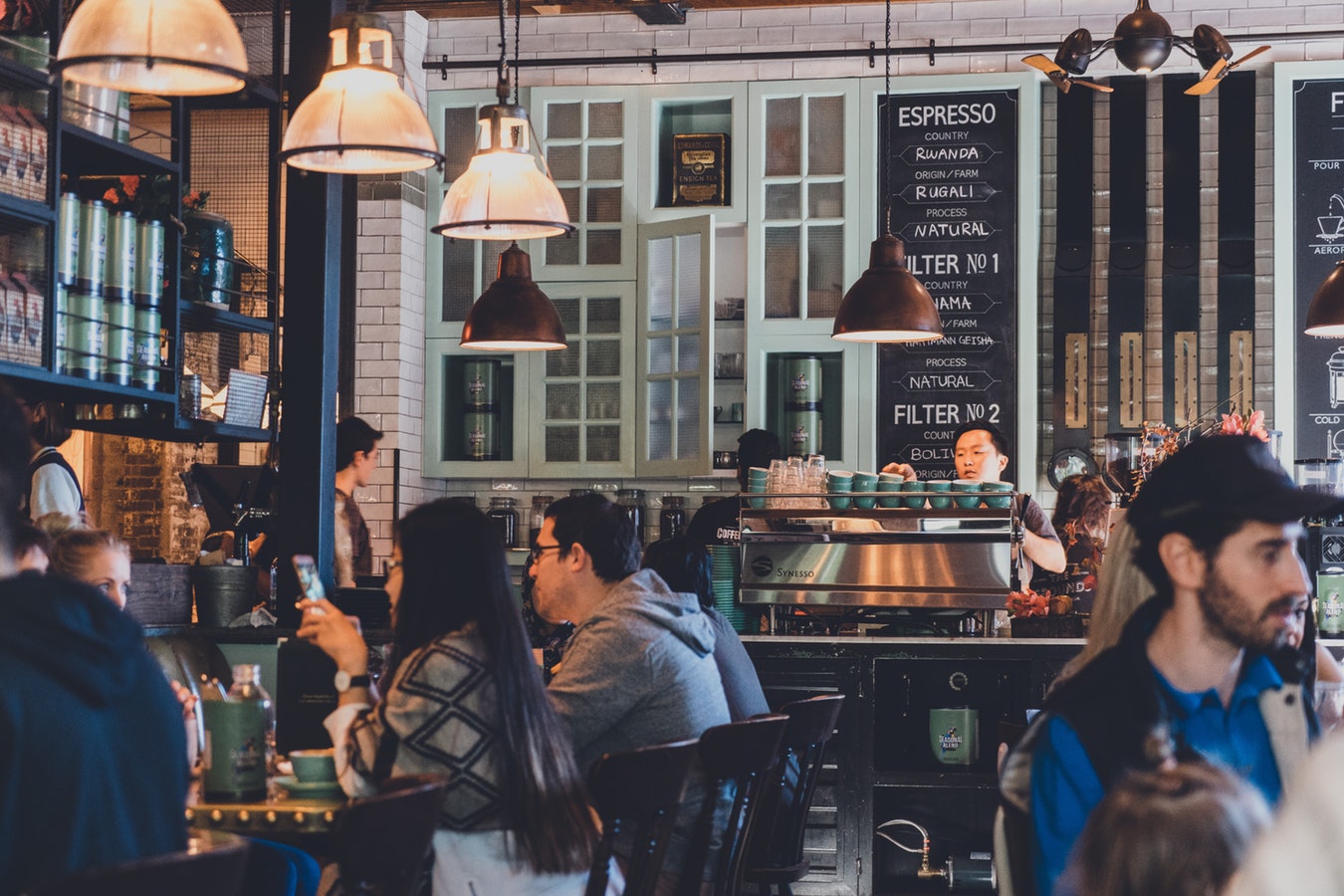Polish Coffeehouse Missions

What do you do when the word "church" carries all the wrong connotations? When "Christian" is either something one is by cultural heritage or something society has recently moved beyond by becoming "post-Christian?" When "love" means sex, warm feelings, or an anything goes approach to life?
Well . . . you educate and inspire. You live in communion and pray. You become Christlike as persons and as a community. You live lives of genuine love through care, kindness, and compassion. You become holy, because the Lord your God is holy.
And you build coffeehouses.
That's the missional strategy in Poland today. A team of Church of the Nazarene leaders including Ev and Rhonda Tustin, Dawid and Simona Berdowski, and Thea Hansen, are living out their calling. And coffeehouse ministries seem just what the Good Doctor ordered.
"The idea for our ministry came from years of ministry in multicultural locations," say the Tustins. "We have watched the church struggle to meet the needs of a new generation of young people who were hesitant to be involved in traditional type ministries."
European young people often gather in pubs and coffee shops. In settings like these, they meet friends and discuss what matters most to them. "We hope to bring a different kind of church to a generation who would never enter a traditional church environment," share the Tustins.
Coffeehouse ministries have advantages over other missional methods. They provide a natural setting for Christians to become deeply involved in the daily life of a community. Also, they offer those who sit and sip non-threatening exposure to the church and its gospel. Coffeehouses are structures used on a day-to-day basis, not empty rooms occupied a few times each week. Plus, coffeehouses supply income to pastors who might otherwise have to balance a bivocational lifestyle.
Dawid and Simona Berdowski met Krystyna as they posted signs in their neighborhood hoping for help to find their missing cat. Krystyna loved cats, and they struck up a conversation. Over time, the couple's relationship with her began to build.
One day, Krystyna asked them to her home to show them photos of a business she recently left-a coffeehouse! When the Berdowskis shared with Krystyna their idea of a coffeehouse ministry, she volunteered her expertise. She had connections with many prominent Polish artists, and she has invited a particularly famous one to exhibit at the coffeehouse. Krystyna also invites local journalists to follow the ministry occurring at the coffeehouse.
When Rhonda Tustin thinks of what Krystyna has contributed, she smiles to herself. "I know that this lovely woman is responding to God's spirit in this place. There is a palpable sense of the Holy Spirit within the walls of the shop. I almost feel a physical hug when I enter the building, a building in which God is using Krystyna to change lives."
Krystyna knows about God, but she hasn't made the kind of commitment into which Nazarene missionaries are inviting Poles. Many Poles are well aware of religion, and typically know numerous facts about the Christian faith. Most Poles have been affiliated in some way with Roman Catholicism, and most have heard the story of Jesus. Unfortunately, many do not enjoy an intentional and intense relationship with God.
"We are witnessing in Poland a profound hunger for spiritual things," report the Tustins. "So in our coffeehouse ministry, we focus on a deeper walk with God." Missionaries in Poland are praying that as Poles visit the coffeehouses, they will encounter something different and leave wanting more."From start to finish," say the Tustins "the shop has been designed to move those who enter closer to a personal relationship with Christ."
This generation of Poles is not fighting against a political machine. It is generally not struggling to put food on the table. But young Poles are looking for meaning in life. They want to hope in something worthy of hope, and trust in something worthy of trust.
"In response to their need and God's call," says Ev Tustin, "we are presenting an authentic, relevant, and biblical image of Jesus through the workings of simple community enterprise."
Maria, a 20-something in Poznan, is finding a deeper faith because of coffeehouse ministry. Brought up Roman Catholic, she was pessimistic that the Polish authorities would allow missionaries to set up a coffeehouse ministry in her motherland. Through the work of the Spirit and the prayers and witness of Nazarenes, however, Maria has joined the friendship group "little voice" and volunteers her expertise in helping the coffeehouse project maneuver Polish bureaucracy.
"I am sorry for doubting your efforts to open this coffeehouse." Maria recently told Rhonda. "I have not seen people who seem to get things done the way that you do, and I am excited to see this come to our community."
God is using coffeehouses in Gdansk and Poznan, Poland, to change lives. Nazarene missional strategists now have their coffeehouse sights set on the country's city-jewel, Krakow, and Denmark's capital, Copenhagen.
Perhaps "Church," "Christian," and "love" will sound like good news again to more northeastern Europeans.
Thomas Jay Oord is professor of theology and philosophy at Northwest Nazarene University and author and editor of many books.
Holiness Today, January/February 2009
Please note: This article was originally published in 2009. All facts, figures, and titles were accurate to the best of our knowledge at that time but may have since changed.




